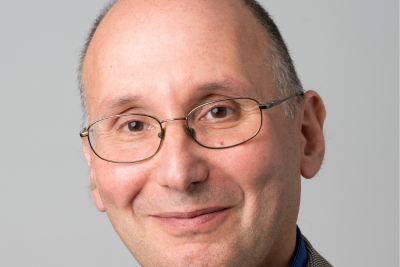Mutographs
Led by Professor Sir Mike Stratton (Wellcome Sanger Institute, UK).The challenge
In 2017, team Mutographs set out to tackle the unusual mutations patterns challenge.
By studying the tell-tale fingerprints etched into the DNA of both healthy and cancerous cells, the team aimed to identify unknown causes of the disease and shed light on geographical differences in cancer incidence.
At the time of setting the unusual mutations patterns challenge, the prevailing thinking in the field was that each disease risk factor or carcinogen would leave behind a distinctive pattern of mutations, known as a ‘mutational signature’. For example, cancers triggered by exposure to UV radiation will exhibit distinct signatures compared to those linked with tobacco use. Team Mutographs hypothesised that working backward from these mutational signatures could identify new, potentially preventable causes of cancer.
Mutographs' ambition was on an epic and global scale, involving the collection and genomic analysis of samples from thousands of cancer patients worldwide. They hoped to dramatically improve understanding about the causes of cancer – and ultimately to prevent more cases in the future.
At a glance
Team and leadership
Mutographs was led by:
Under the leadership of Professor Sir Mike Stratton, then Director of the Wellcome Sanger Institute in Cambridge, UK, Mutographs brought together a diverse group of researchers from the UK, US and France and connected them with cancer centres across the globe. By uniting world-leading epidemiologists with computational biologists, geneticists and clinicians, the team have pioneered an entirely new approach to epidemiology.
Tackling the unusual mutations patterns challenge
By utilising their novel ‘mutational epidemiology’ approach at an unprecedented scale, the team set out to comprehensively catalogue mutational signatures present in the genomes of both cancerous and normal cells, and thereby uncover the underlying mechanisms behind cancer development. Mutographs hoped to identify the causes of these mutational signatures, in order to apply this knowledge to cancer prevention.
The researchers set themselves the monumental task of collecting patient samples from 5,000 patients from around the world. Thanks to a unique and pioneering strategic partnership between the Wellcome Sanger Institute and the International Agency for Research in Cancer (WHO-IARC), enabled by Cancer Grand Challenges, the team hugely surpassed their original expectations. Mutographs successfully gathered samples from 7,800 patients across eight cancer types – including pancreatic, kidney, oesophageal, bowel, head and neck, bladder and gallbladder cancers.
These people were recruited from over 40 medical centres in more than 30 countries, spanning across five continents. Critically, for each cancer type, patients were included from regions with high or low incidence rates. This extensive biorepository containing over 100,000 tissue samples from many thousands of cancer patients along with detailed demographic, lifestyle, environmental, clinical data, and whole genome sequences, holds immense promise for future discoveries and will remain a valuable resource for the scientific community for years to come.
By studying this vast data, the team has uncovered several exposures linked to cancer incidence in multiple cancer types, which collectively affect potentially tens of millions of people. The team are working to determine the source of these exposures.
But through unexpected findings they have also made seminal discoveries that have transformed scientific understanding about the role of mutations in carcinogenesis. When the challenge was set, the predominant thinking in the field was that most carcinogens caused cancer by directly altering cellular DNA. However, by exposing mouse models to suspected carcinogens and observing the resulting mutational patterns, the team observed that many carcinogens do not actually cause an increase in mutations, and presumably act via other means. In oesophageal squamous cell carcinoma the team also found no geographical variation in mutational signatures despite dramatic variance in global incidence rates. In addition, the teams’ research has added to the body of work revealing that many healthy tissues harbour complex and diverse mutational landscapes.
Together, these findings have led to a major shift in how the scientific community thinks about how carcinogens cause cancer, reigniting interest in the promotional hypothesis of carcinogenesis, by uncovering an important role of non-mutagenic mechanisms. The team has simultaneously emphasised the critical role of mutations, highlighting they are essential, but in some cases not sufficient to drive cancer.
Explore Mutographs' scientific publications
Looking ahead
Team Mutographs has pioneered the field of mutational epidemiology, paving the way for potential new approaches to cancer prevention. The team’s groundbreaking discoveries range from identifying unknown mutational signatures and uncovering multiple widespread mutagenic exposures of known and unknown causes, to revealing the complex mutation patterns in healthy tissues, challenging the somatic theory of ageing, as well as adding to the body of evidence for the promotional theory of carcinogenesis.
Mutographs’ findings subsequently led to Cancer Grand Challenges setting the normal phenotypes challenge. In 2020, the PROMINENT team was funded to investigate how cells maintain a normal phenotype despite harbouring cancer-causing mutations and what causes them to become cancerous. Team Mutographs is working towards determining the source of the unknown exposures causing the identified mutational signatures and further expanding their mutational epidemiology approach, toward a complete global catalogue of mutational signatures, to ultimately inform cancer prevention strategies.


